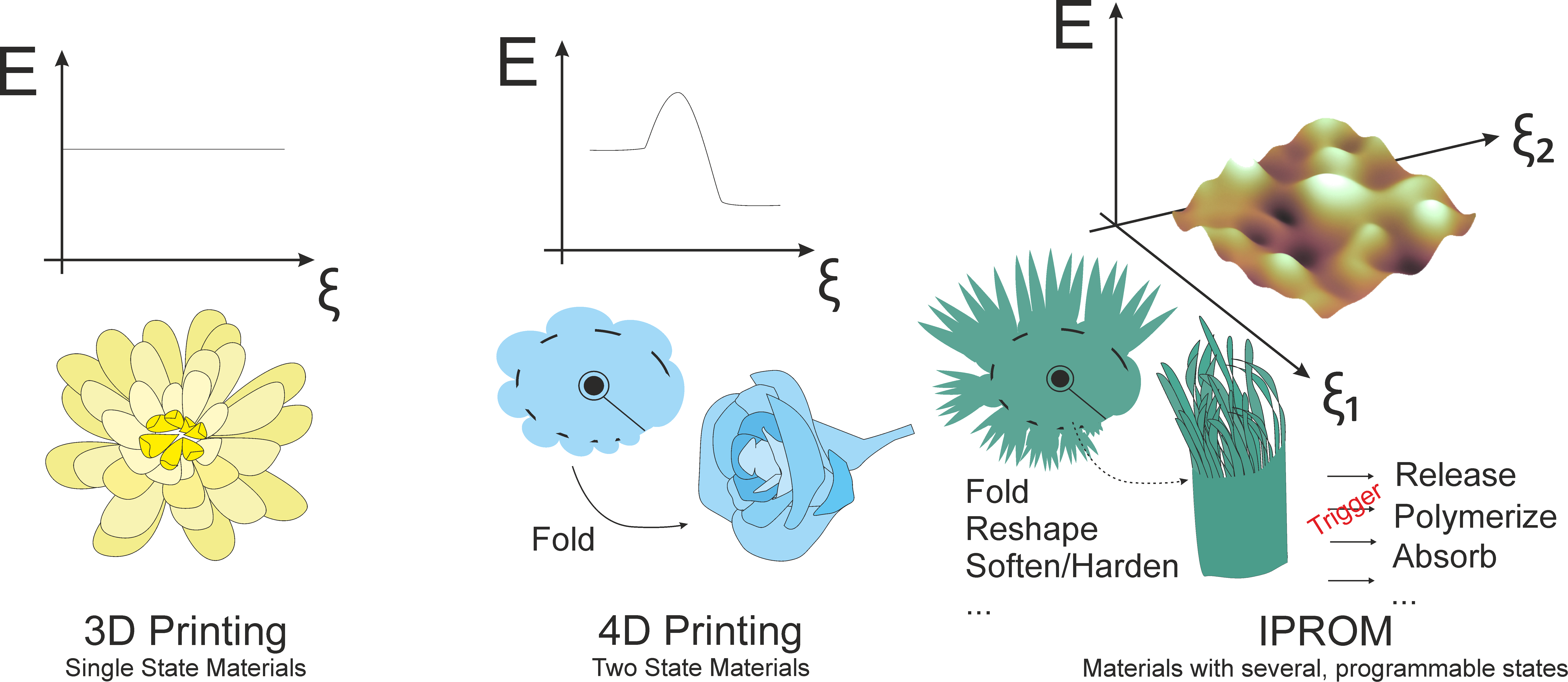The IPROM Project is a ZEISS Research Cluster involving nine Research Groups and one Young Investigator Group at the Freiburg Center for Interactive Materials and Bioinspired Technologies (FIT).
Man-made materials are usually designed to be unchangeable in their form and structure. Natural materials however adjust to their surroundings, like a plant orienting its leaves towards the sun. The concept of 4D printing describes materials that have been additively manufactured and are able to their physical form or shape in a controlled fashion. The concept of IPROM is an extension of such material functionality: Instead of generating a material with two energy levels, e.g. flat and folded, IPROM aims at generating materials with a rich energy landscape. This enables the materials not only to change their form, but also to react to their surroundings in various ways. An external trigger, such as current, heat, pH value or light triggers a reaction of the material, such as polymerization/depolymerization, reshaping, increased absorption properties or the realease of substances, e.g. for drug delivery.

An overview of 3D printing, 4D printing and the aims of the IPROM Research Cluster. IPROM will generate programmable materials with a complex energy landscape, that change their properties in reaction to an external trigger.
The NeptunLab is involved in the IPROM Project with three individual PhD projects.
- In the project “generation of light-responsive materials for 3D and 4D printing” light-responsive materials, e.g. based on azobenzenes and spiropyrans will be developed. The materials will be used for 4D printing and their response to external light triggers will be evaluated.
- The project “Novel Photoresists for Multimaterial 3D and 4D Printing” aims at developing special material mixtures that can be used for multi-material printing in a parallel manner. Instead of exchanging the printing materials, the chemistry will ensure the selective reaction of individual material phases.
- “Sustainable materials for 3D and 4D Printing” will develop sustainable material systems for 3D and 4D printing, based on photocleavable chemistry and sustainable material fillers as well as functionalized bio-monomers.
Please visit the official IPROM website for more information on the Research Cluster
